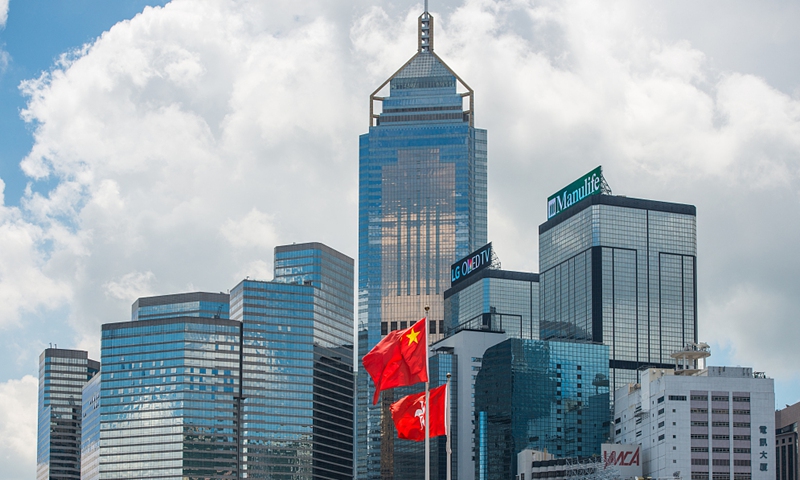Outspoken HK lawmaker mulls national security education center to supervise reforms
By Chen Qingqing and Zhao Juecheng Source: Global Times Published: 2020/12/20 22:23:47

Hong Kong File Photo: VCG
An outspoken pro-establishment LegCo lawmaker Junius Ho Kwan-yiu plans to establish a center for national security education with 8 million Hong Kong dollar ($1.03 million), aiming to supervise reforms of liberal studies subjects at local schools while reporting public opinion to the new national security committee and other relevant authorities to further implement the national security law for Hong Kong.
Ho, who is widely known for his patriotic spirit and harsh criticism of anti-government protests in 2019 that turned into rioting, told the Global Times in an exclusive interview recently that with the support of Cao Fushun, a new resident of Hong Kong from the Chinese mainland, he will take the initiative of launching a national security education center under the International Probono Legal Services Association (IPLSA), a non-profit organization established by Ho in 2018.
The center will include some retired teachers and principals to supervise the curriculum and teaching at local schools while launching two funds entitled "saving children" and "never too late to correct mistakes" to help young Hong Kong people who took part in anti-government riots last year to get back to normal life, Ho said.
The lawmaker hopes the center, which would be the first of its kind in Hong Kong, will play big role in helping implement the national security law for Hong Kong that took effect since June. It would formulate close communication with relevant authorities including the committee for safeguarding national security and the office for safeguarding national security of the central government in Hong Kong - two major authorities set up when the law came into force.
The HKSAR shall strengthen its work on safeguarding national security by taking necessary measures to "strengthen public communication, guidance, supervision and regulation over matters concerning national security, including those relating to schools, universities, social organizations, the media, and the internet," according to the national security law for Hong Kong.
"The social organization plays the role of supervisor, lawfully," Ho said, adding that the center will report relevant issues and questions to the Education Bureau, the office and the committee for safeguarding national security.
Hong Kong's education system came under the spotlight during the months of social unrests, as nearly half of arrested protests were students who had been radicalized due to the lack of understanding of Chinese culture and history with little recognition of their identities as Chinese. It has made the education reforms even more urgent, prompting lawmakers like Ho to come up with such a plan of enhancing patriotic education among young Hongkongers.
Secretary for Education Kevin Yeung Yun-hung also recently pointed out that officials are mulling stepping up classroom inspections to monitor the teaching of liberal studies subject after its reintroduction in revamped form, the South China Morning Post reported on December 4. He also acknowledged the possibility of increased oversight in LegCo meeting.
The center is expected to begin operating by the end of January. With two funds launched under the center, some young people, who had taken part in social unrest last year but hoped to get their normal life back, could be subsidized for participating in community social work, such as renovating apartments for elderly people who live alone.
Ho stressed the center will also provide a platform for more mainlanders to take concrete actions in enhancing patriotism in Hong Kong.
Posted in: POLITICS